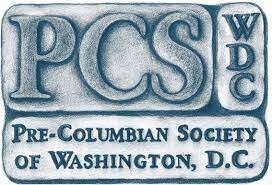Contribution to World Heritage by the PERU LNG Project, Gregory D. Lockard, PhD
This meeting will be held at The Charles Sumner School, 17th & M Streets, N.W., Washington, D.C.
The meeting starts with refreshments at 6:45 pm and the lecture begins at 7:15 pm.
This talk will present the results of the PERU LNG Archaeological Project (the Project). The PERU LNG Project involved construction of a natural gas pipeline, a liquefaction plant, and a marine terminal. The pipeline extends from the eastern slopes of the Andes to the Pacific coast. The PERU LNG Archaeological Project was required before construction permits could be secured from the Instituto National de Cultural (INC), Peru's cultural resources regulator at the time. As one of the largest archaeological investigations in the history of Peru, the Project included surveys, sites evaluations, and rescue (i.e., data recovery) excavations--all in compliance with an Environmental and Social Impact Assessment and Peru's law and regulations. Also a robust, INC-approved archaeological monitoring program was implemented during construction. A total of 137 archaeological sites were rescued and an additional 140 sites were investigated as chance finds (i.e., inadvertent discoveries) under the Monitoring Plan. Sites ranged from major archaeological complexes to very small artifact scatters. The talk will focus on the four major complexes that were investigated: Pumapuquio, a highland Wari residential and administrative center; Corpas, a highland Warpa/Wari agricultural, residential, and ritual center; Rumajasa, a highland Cari/Chanka funerary site; and Bernales, a coastal Chincha site associated with a small adobe platform mound. Because every site discovered in the affected area was fully excavated—regardless of its size, integrity, or significance—the Project produced a complete archaeological picture of the ancient cultural landscape of the affected area and the results have contributed significantly to our understanding of Peru's past.
Greg Lockard received his PhD in Anthropology from the University of New Mexico in 2005. His graduate studies focused on the Moche and Chimu cultures of the north coast of Peru. His dissertation was titled "Political Power and Economy at the Archaeological Site of Galindo, Moche Valley, Peru." From 2011 to 2014, he led a multidisciplinary team providing all cultural resources support for the Deepwater Horizon Oil Spill Response along the Gulf Coast of Louisiana, Mississippi, Alabama, and Florida. Archaeological surveys conducted during the project identified 115 new sites and revisited 447 previously recorded sites. The project also involved a detailed investigation and assessment of Fort Livingston, a Civil War era fort. From 2008 to 2011, Greg served as the lead archaeologist for the PERU LNG Project. He is currently a Senior Consultant at Environmental Resources Management (ERM) in Washington, D.C.
